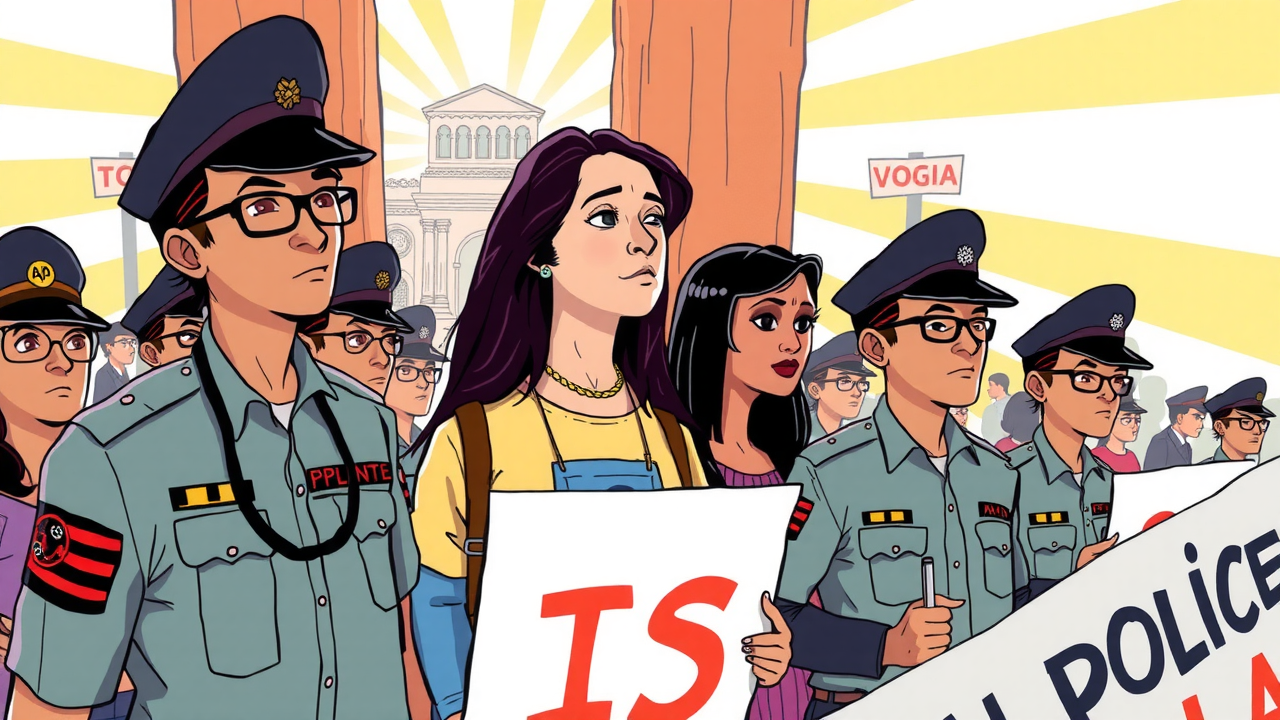Prominent activists, including economist Jean Drèze and CPI leader Annie Raja, were detained by Delhi Police during a silent protest organized by the India for Palestine collective. The demonstration, which called for a ceasefire in Gaza and an end to India’s ties with Israel, was stopped as protest

On Friday, the Delhi Police detained several prominent figures, including economist Jean Drèze, human rights activist Nadeem Khan, and Communist Party of India (CPI) leader Annie Raja, during a silent protest organized by the India for Palestine collective. The protest, which called for a ceasefire in Gaza and urged the Indian government to sever ties with Israel, was stopped by the police despite prior notification of the demonstration.
Details of the Protest and Detention
- The silent protest, which began in the Khan Market area, was intended to culminate at the Israeli embassy in New Delhi. The demonstrators, including social scientists and activists, were detained by the Delhi Police as they marched towards their destination.
- Jean Drèze explained that the protesters were standing silently with banners and did not shout any slogans, yet they were detained by the police.
Accusations Against the Indian Government and Corporations
- The India for Palestine collective accused the Narendra Modi government and several public and private sector companies of complicity in what they described as the genocide in Gaza.
- They singled out Adani Defence and Aerospace Ltd., Munitions India, and Premier Explosive as key players in supplying militarized cargo to Israel. The collective also criticized the government’s decision to send Indian workers to Israel, arguing that it endangers their lives.
Legal and Ethical Arguments Presented by the Protesters
- The protesters highlighted that India is a signatory to the Genocide Convention and other international laws and treaties that prohibit the supply of military weapons to nations involved in war crimes.
- According to the collective, these legal obligations require India to prevent genocide, which includes halting the export of military equipment to Israel if there’s a serious risk of it being used to commit war crimes.
- The protesters demanded an immediate cessation of arms supplies to Israel and a suspension of all official ties between India and Israel.
Call for Boycott and the BDS Movement
- The collective urged Indian citizens to boycott companies and products that support the illegal occupation of Palestine by Israel.
- They called for action in line with the Boycott, Divestment, Sanctions (BDS) movement, which aims to end international support for Israel’s oppression of Palestinians.
Casualties in Gaza
- The protest was held against the backdrop of a devastating conflict in Gaza, with reports indicating that at least 39,699 people (as per UN)and 186,000 people (as per Lancet) have been killed and 91,722 injured (as per UN) due to ongoing Israeli military actions, widely condemned as genocidal.





